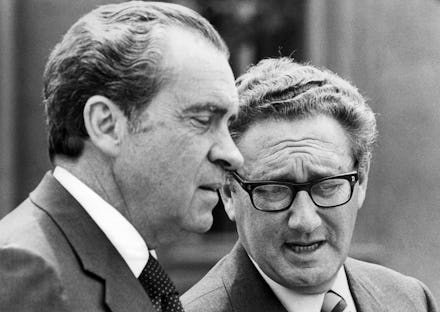Why the War on Drugs Was Really a War on Poor People

In March, Dan Baum, a Harper's contributor and former New Yorker staff writer, recalled a disturbing conversation he had in 1994 with President Richard Nixon's domestic affairs advisor, John Ehrlichman. Ehrlichman told Baum point blank that Nixon's crackdown on drugs had been a ploy to put black people in jail, "disrupt" black communities and perpetuate racism.
If there was any question about whether the ongoing war on drugs disproportionately targeted people of color, Baum's revelation leaves little room for doubt. Still, one crucial component is often left out of the conversation: class.
Studies have shown that people with lower education are more likely to abuse drugs. But instead of acknowledging inequality in access to education as being among the root causes of the problem, the system has historically seen those who live in poorer areas with worse schools wind up in prison.
When Wall Street trader Chris Arnade left his job to photograph New York City's drug addicts, he said in his Guardian piece that what he learned could be summed up in a single sentence: "When you're wealthy you make mistakes. When you are poor you go to jail."
Read more: Obama's Proposal Marks a Historic Shift in the War on Drugs
With 1 in every 100 adults in the U.S. in jail, and just over 46.5% of them for drug offenses, cycles of poverty don't stand a chance.
Inge Fryklund, a member of the anti-war on drugs organization Law Enforcement Against Prohibition, wrote in a Huffington Post blog, "Incarceration divides and impoverishes families, removes adult males from communities, and leaves men even less employable." She added that children with incarcerated parents are further disadvantaged by virtue of having an absent parent, as well as having to deal with social stigmas and bleak outlooks when it comes to their own future families.
"Stopping the drug war is a major change that, in one fell swoop," Fryklund wrote, "would ameliorate a whole host of problems for poor children and their families."